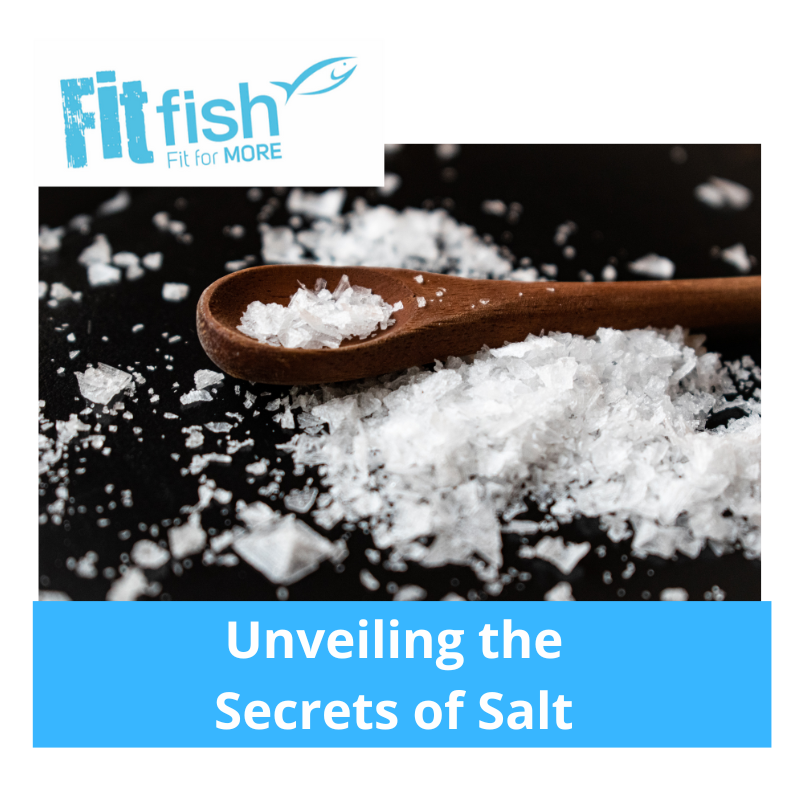Unveiling the Secrets of Salt

So, how much salt are you consuming? Do you think you are within the government guidelines for salt intake? Does it matter?
Here’s what you need to know about salt, its impact on your health, and how to manage your salt intake effectively:
Why We Need Salt (But Not Too Much)
Salt is essential for our bodies to function properly. It aids in nerve signalling, muscle function, and regulating blood pressure. If there is too little in the body, then the kidneys adjust the concentration of the excreted urine to restore the balance. When there is excess salt in our body, the brain’s thirst centre is triggered, prompting us to drink enough fluid to restore the balance.
Although the body, in general, is great at adjusting the balance in small amounts, excessive salt intake may have severe consequences, including high blood pressure, heart disease, and stroke. There may also be an increased risk of osteoporosis.
Salt Recommendations in the UK
It is crucial to consume salt in moderation. Striking a balance is a key to maintaining optimal health. In the UK, it is recommended to limit salt intake to less than 4g per day.
Shockingly, the average individual in the UK consumes 8.4g daily, exceeding the recommended intake by over 100%! By being mindful of our salt consumption, we can take a positive step towards better health.
Where is Salt Lurking?
Salt hides in various foods, some of which may surprise you. Processed snacks like crisps, pretzels, and crackers usually contain high amounts of salt. Takeaways and ultra-processed foods also have large amounts.
But it’s also present in sauces, condiments, canned foods, baked goods, and ‘healthy’ shop-bought snacks. Have a look at the food labels on your favourite packaged foods and ingredients. You might be surprised! Being aware of these hidden sources empowers you to make healthier food choices. The recommendation of no more than 4g of salt per day can add up quickly.
How many grams do you think you have per day?
Reducing Salt in Your Diet
Lowering your salt intake doesn’t mean sacrificing flavour. Here are some practical tips to help you reduce salt in your diet:
- Cook meals at home without added salt and experiment with herbs, spices, and citrus to enhance flavours without compromising on taste.
- Read food labels diligently when grocery shopping and choose low-sodium alternatives.
- Rinse canned foods to remove excess salt before consuming.
- Use low-salt stock cubes.
- Avoid adding salt at the table, and instead, focus on using other seasonings to enhance the flavour.
- ‘Water down’ shop-bought soups with a tin of tomatoes or chopped leftover vegetables to reduce the salt per portion.
- ‘Water down’ baked beans with a tin of plain beans, without sauce, to reduce the salt per portion.
By following the recommendations for salt intake, being aware of hidden sources of salt in your diet, and implementing practical strategies to reduce salt, you can take control of your health and maintain a balanced approach to salt consumption.
Want some salt-free tasty recipes?! Why not join our Fitfish for a Fiver programme? As well as receiving 5 recipes per month you will also receive a welcome gift of 25 Five-ingredient recipes!
Comments
Add comment